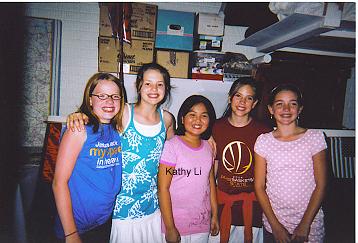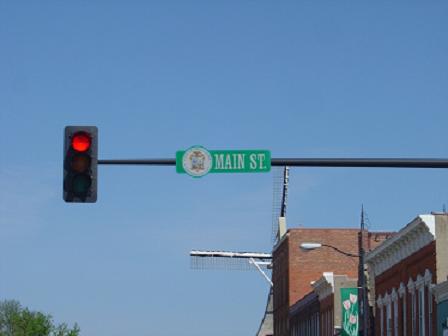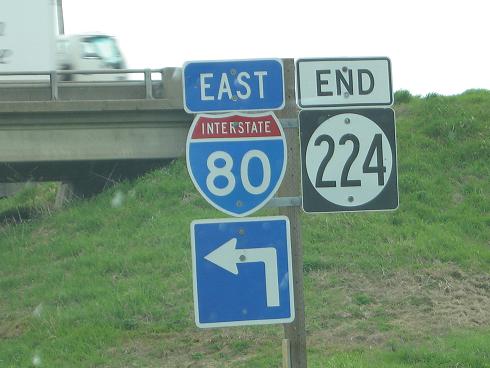by Don Huffman
Maxine and I were both interested in the outcome1 of the “First In The Nation Iowa Caucus”2 which took place in our state of Iowa on January 3, 2008. A caucus is a meeting of likeminded people3 to determine policy or elect candidates4 for office, and we have attended some5 in previous years. Don couldn’t attend unless he was willing to register as either a Democrat or a Republican6, and that would cancel7 his registration as an Independent8. Maxine and Kim planned to attend but the weather was bad and the roads and parking lots9 were icy. They could not do the caucus10 this year. Still, we think it a good idea11, and we will continue to follow the results.
We were surprised that the young, black Democrat, Barack Obama12, scored a victory over the popular politicians Hillary Clinton and John Edwards in a predominately13 white state with many conservative Republicans14. We were surprised that a conservative, obscure15, former Baptist preacher16 from Arkansas17 defeated other Republicans who spent much more time and money in Iowa before the caucus.
One might ask, “What significance does this have if any?” For us the answer is, “The Iowa Caucus is the first step in the selection of a new candidate for determining18 the president of the U.S. Iowans19 have once more shown themselves to be among the best informed of any voters in the U.S.” Some other states and areas in the country might not agree with this, but Iowa is the first state to express their favorites in each party, and this creates lots of excitement.
Iowa held primary presidential elections20 until 1972, to determine candidates for both the Republican and Democratic21 parties. The final election takes place once every four years on the first Tuesday in November, and the President-elect22 is ultimately determined by a vote of the Electoral College23, a group of people from each of the 50 states, their numbers based on state population. Presidential elections are not determined by popular vote24 in the U.S.
In 1972 Iowa’s political leaders came up with a process which they felt would better inform both the voters and the presidential hopefuls25 about the important issues26 and policies involved in the presidential elections. They devised27 a “First-In-The-Nation Caucus,” and scheduled it before any other state primary election or caucus. State leaders in Iowa noticed that there had been a decline of interest in primary presidential elections28, and they hoped to encourage a closer, personal knowledge of each candidate29 before the nominating conventions of both major parties30. We feel it has worked well, because the interest is certainly greater than before.
35 years later, some other states and regions have challenged31 the wisdom of the Iowa Caucus, claiming32 the Iowa state population is too small, it lacks diversity in minority populations33, and therefore some people have suggested that the “First-In-The-Nation” status be passed around from state to state34, or rotated on a regional plan35. So far this has not happened. In a state of fewer than 1.5 million voters36, more than 350 thousand Iowans participated in the caucuses. Party candidates met voters in literally all of Iowa’s 99 counties in schoolrooms, churches, community centers37, small country stores, and in private homes as well as on the streets. They met, presented their views, and learned about what was important to the citizens of Iowa. The turnout38 of voters this year was about 20% higher than for the last presidential election. One of the few complaints39 heard was that “There wasn’t enough room for the participants who attended.” Iowans insist40 that this shows the value of their caucus plans. People like it!
It remains to be seen41 what the final results of the 2008 presidential election will be, but nearly all local and national politicians and political analysts42 agree that the Iowa Caucus results indicate a widespread desire for radical changes43 in political leadership in the U.S. Recent polls indicate that these views are nationwide, and we think this is good news!
Notes:
1. outcome: results of something (结果)
2. First In The Nation Iowa Caucus: a meeting of Iowa citizens who wish to discuss and make decisions about their choices for major party candidates in presidential elections (全国第一州爱荷华州政党候选人初选).
3. likeminded people: people or groups who have similar tastes, interests, and opinions (志趣相投的人,想法相同的人).
4. candidates: those persons who wish to be selected to represent their political party (候选人).
5. have attended some: have been present at or have gone to some meetings of the kind (曾经参加过一些这样的会议).
6. register as either a Democrat or a Republican: officially declare allegiance to a given political party (登记为民主党员或共和党员).
7. cancel: delete, omit or remove something (取消).
8. Independent: a person who is not affiliated with either major party (无党派人士).
9. parking lots: the spaces provided for cars to park while attending an event (停车场).
10. do the caucus: take part in or participate in the caucus (参加该会议).
11. Still we think it a good idea: 我们依然认为参加会议是个好主意。此处it是指前面的”do the caucus”。
12. Barack Obama: 巴拉克•奥巴马
13. predominately: mostly, for the most part (大部分地,绝大多数地).
14. Republicans: 共和党党员
15. obscure: not known about or not well known (不知晓的,无名的).
16. Baptist preacher: 基督教新教、浸礼会教派牧师
17. Arkansas: 阿肯萨斯州
18. determining: deciding or making a choice (决定,选择).
19. Iowans: 爱荷华州人
20. primary presidential election: the first formal voting in the selection of a presidential candidate (首次总统选举正式投票).
21. Democratic party:民主党
22. President-elect: the person who has most recently been elected as president (当选总统).
23. Electoral College: the group of people representing each state in the U.S. who are given the authority to make the final selection of the president and the vice president of the U.S. (美国总统选举人团,由各个州的代表组成,他们有权最后选举美国的总统和副总统).
24. popular vote: the actual count of the votes cast by individuals within the nation ( 美国个人选民的实际投票数). In the U.S. this is not the final determination of the president and vice president.
25. presidential hopefuls: people who want to win or seem likely to win the presidential election (有望当选总统的人).
26. issues: the major considerations of items thought to be the most important (议题,社会问题).
27. devised: developed or came up with a plan (设计,策划).
28. decline of interest in primary presidential elections: 对总统候选人初选的兴趣下降
29. encourage a closer, personal knowledge of each candidate: 促进对每个候选人个人情况的更加了解。
30. nominating conventions: formal meetings of political parties and their representatives to select their choice for president and vice president (政党及其代表选择总统和副总统人选的提名大会).
31. have challenged: have refused to accept that something is right, fair, or legal (质疑,怀疑).
32. claiming: stating or believing something to be so (声称).
33. minority populations: 少数民族人群
34. passed around from state to state: moved or changed from one state to another (一个州一个州地传过去).
35. rotated on a regional plan: 按地区轮流
36. voters: those people who cast a ballot in an election, or who are permitted to do so (投票者,有投票权的人).
37. community centers: 社区中心
38. turnout: the number of people who vote in an election (参加投票的人数).
39. complaints: criticisms, or negative remarks about something or someone (意见,批评).
40. insist: absolutely demand, or require that something be considered a fact (坚持认为).
41. It remains to be seen: 依然要等着瞧
42. political analysts: those people whose profession is to study and interpret political actions or results (政治分析家).
43. radical changes: striking or important departure in direction or courses of action (根本变化).


